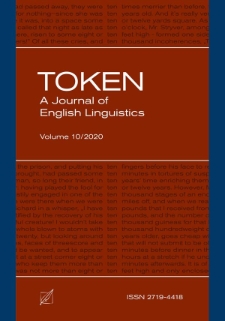Digital Library of the Jan Kochanowski University contains 13 466 digital objects
Object
Title: Peaceful coexistence?Ideology in the representation of Scots and North American languages in Late Modern literature
Creator:
Group publication title:
Abstract:
This study discusses some ideological traits in Late Modern English literary discourse concerning contact with other languages or socially- and geographically-marked varieties across the North Atlantic. Beyond ‘dialect literature’ and occurrences of ‘literary dialect’ (Shorrocks 1996), other very popular works greatly contributed to the definition of how readers perceived different languages and varieties in terms of relative prestige. In addition, popular culture also helped to disseminate evaluations of linguistic features. Representations in such texts were often ambivalent, ranging from humorous (to the point of caricature) to nostalgic, elegiac tones, but they always drew attention to the exotic, distant quality of the forms under discussion. Indeed, glossaries often present these features as witnesses of a quickly vanishing past, in need of preservation like ancient relics. In my analysis I will consider both different languages and varieties of the same language, in an attempt to show how their more or less explicit evaluation contributed to the creation of their (often persistent) image among readers on both sides of the Atlantic.
Place of publishing:
Physical description:
ISSN:
Publisher:
Wydawnictwo Uniwersytetu Jana Kochanowskiego w Kielcach
Date issued:
Identifier:
oai:bibliotekacyfrowa.ujk.edu.pl:4256 doi:10.25951/4359
Language:
Is part of:
Token : A Journal of English Linguistics
Has part:
Type:
Access rights:
Format:
Object collections:
- JKU Digital Library > University Publishing
- JKU Digital Library > University Publishing > Serial publications
- JKU Digital Library > University Publishing > Serial publications > "Token : A Journal of English Linguistics"
Last modified:
Apr 4, 2025
In our library since:
Nov 25, 2021
Number of object content hits:
140
Number of object content views in PDF format
232
All available object's versions:
https://bibliotekacyfrowa.ujk.edu.pl/publication/4359

